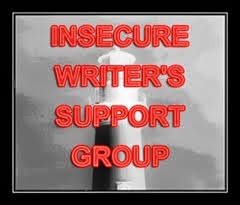A while ago I
did a post on book sales from both traditionally published authors and self-published
authors (or as I like to say Indie authors). Most of my figures a few years
old, because the publishing industry isn't very forthcoming about its sales
figures.
Well, my friends, it seems like I’m not the only person who’s been wondering how Indie authors fair compared to their traditional counter parts. Dana Beth Weinberg did a series of articles entitled The Self-Publishing Debate. In the three parts she talks about all the usual issues: Why self-pub/traditional pub? How many titles do self-pub/Traditional/Hybrid authors publish? What kind of income do they make?
Well, my friends, it seems like I’m not the only person who’s been wondering how Indie authors fair compared to their traditional counter parts. Dana Beth Weinberg did a series of articles entitled The Self-Publishing Debate. In the three parts she talks about all the usual issues: Why self-pub/traditional pub? How many titles do self-pub/Traditional/Hybrid authors publish? What kind of income do they make?
Her analysis is
based on the 2013 Digital
Book World and Writer’s Digest
Author Survey; that surveyed 5,000 authors. Not nearly a complete look,
but a nice sample.
Here are some of the highlights from her report:
Here are some of the highlights from her report:
About 19% of self-published authors in the sample also reported no annual income from their writing, compared to 6% of traditionally published authors and only 3% of hybrid authors.
(At the top earning, $200,000) less than one percent (0.6%) of self-published authors, 4.5% of traditionally published authors, and 6.7% of hybrid authors who reported on their income.
Self-published authors in the sample earned a median income in the range of $1 to $4,999, while traditionally published authors had a median writing income of $5,000 to $9,999, and hybrid authors earned a median income of $15,000 to $19,999.
Digital Book World’s
analysis created a bit of a stir in the Indie publishing world. Especially when a colleague promoted her post
on Forbes with the following title: How Much Money Do Self-Published Authors Make? And to answer that question he stated: In short, not much.
Indie authors from
all over the web came out to cry foul.
What were their issues?
Who they
sampled for starters. Many active indie authors (who claim to be high earners) said
they weren't asked take part in the survey despite being affiliated with Writer’s
Digest. When you do informal surveys
like this it’s hard to get a repressive data set. Is it likely they missed the mid-level and
higher earners because they were busy working on their careers? Yes.
One comment mention that there was no distinction between new authors (with only a few
books under their belt) and authors who've been publishing for years. Time is an important factor in building an audience.
So there’s a higher likelihood that the traditionally published/hybrid authors
in the survey have an advantage over the indie authors because self-publishing
is still in its infancy.
The other issue that
I think is more than fair was broached by Hugh Howey. He complains that the
survey is reading
the data wrong. He argues:
But that compares ALL self-published authors and only a small fraction of people who go the traditional route. I've been hammering this point home for years, but it still gets left out of these comparisons. When you look at earnings and sales figures for traditionally published books, you have to take into account the huge percentage of books that never make it out of the slush pile. Why? Because those are authors and books attempting to go that route.
He makes a good
point. Look at it this way.
If I've written a book
and am trying to publish through the big five publishers, I spend my time submitting
my work, tweaking it, and resubmitting it.
Sometimes for years. If my own writing contacts are indicative of this
route then it’s likely these authors have several unpublished books waiting in
the wings for a publisher to give them a golden ticket. None of these writers
are counted on as traditionally published authors that have no income from their
writing. Because the survey is looking at PUBLISHED writers.
BUT on the other spectrum.
I write that same book, prepare it for self-publication, and despite my blood
offerings to the gods of Indie authors, I don’t sell a single copy. I’m counted in the survey as making no income
on the book because I've published.
One of the main
problems and greatest advantages to self-publishing is there are no
gatekeepers. No one stops you from publishing
a book of poetry about your cat mittens. No one tells you that caveman erotica
won’t sell. You can publish what you want (within the distributor’s guidelines).
So Howey has a
point. If we are counting the multitude of authors who self-publish (even when
they shouldn't) why aren't we counting the publishing slush pile?
Personally I like the
landscape Howey paints for the self-publishing industry:
Even if you just guessed at the number of [traditionally] submitted manuscripts that make it to publication being at 1% (which I think is awfully generous), you would immediately see a completely different landscape. Take the top 1% of self-published books and compare their earnings with traditionally published books. That would be something to behold.
While I think he’s
being a little too generous there, but he could be right. Amazon recently reported that 25% of their digital best sellers (top 100 kindle books) for last year were
indie titles. That is something to behold!




















